Hyundai and Kolon partner to advance Hydrogen Components for Future Mobility
Kolon Group and Hyundai Motor Co. have formed a strategic alliance to accelerate the development of hydrogen-based energy technologies, particularly components like pressure vessels. Through this collaboration, Hyundai has invested 20 billion won in Kolon Spaceworks, a subsidiary specializing in hydrogen mobility and composite materials. Kolon Spaceworks recently achieved international certification for a 54-liter hydrogen fuel tank, which strengthens its position in the high-pressure container market. This milestone allows the company to compete globally by validating its production capabilities. Certain components which are used for Hydrogen based energy technology, such as pressure vessels usually require KGS factory registration in order to be approved for import and sale in Korea.
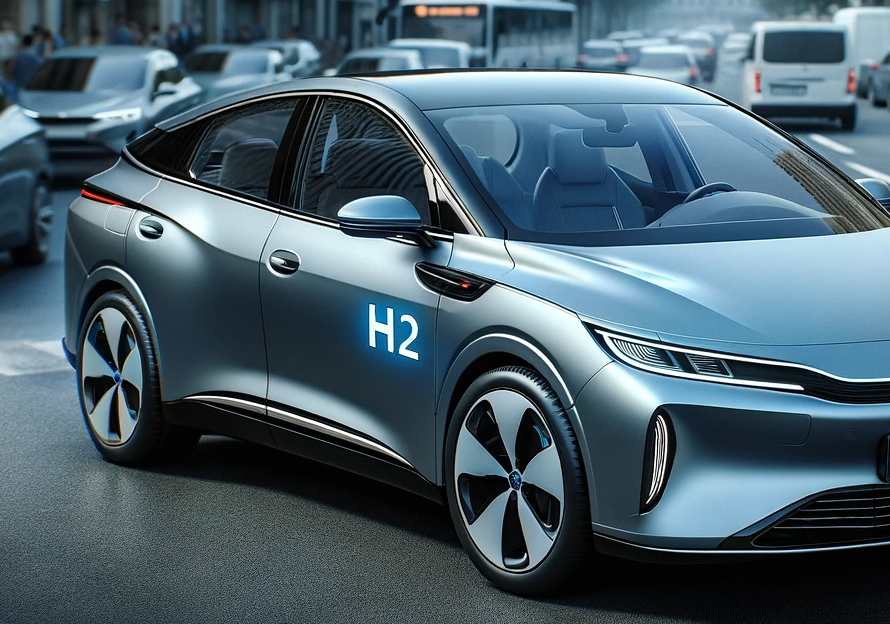
Hyundai Motor Group’s participation includes the purchase of over 1 million new shares in Kolon Spaceworks, split between Hyundai and Kia at 12 billion and 8 billion won, respectively. The collaboration aims to leverage Kolon’s expertise in durable, heat-resistant materials—originally developed for aerospace and defense—for use in automotive applications such as hydrogen storage and battery protection. These developments support South Korea’s broader hydrogen economy initiative and reflect Hyundai’s significant commitment to sustainable transportation, including a domestic investment of 24.3 trillion won in technologies like electrification and hydrogen systems.
Feel free to contact us any time if you need assistance or have any questions regarding Korean certifications like KC, KC EMC, KCs, KCs for explosion safety products or KGS factory registration.
Tel. Europe: +49-69-271 37 69 259
Tel. US: +1 773 654-2673
Email: info@korea-certification.com
For more information you can download our free brochure “Korea Certification Made Easy – The Booklet“.
Germany’s Merck Expands Semiconductor Materials Production in Korea
Merck, a German multinational, is preparing to launch local production of chemical mechanical polishing (CMP) slurry in Korea, following quality testing with domestic clients. CMP slurry, a critical component in semiconductor wafer surface treatment, is expected to be delivered starting in the first half of 2022. The material is used in combination with CMP pads to polish and planarize wafer surfaces. Merck previously established a CMP slurry production facility in Pyeongtaek, Gyeonggi Province, as part of its Korea Advanced Technology Center (K-ATeC), which began operations in 2020. Electronic devices, semiconductor components, measurement and test equipment may require KC certification to be approved for import and sale in Korea.
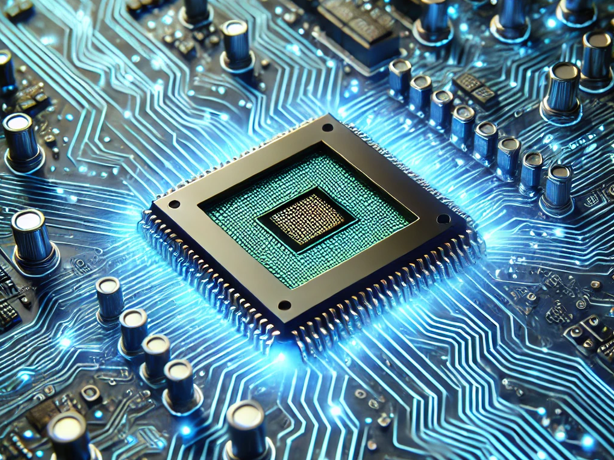
CMP materials must be customized to suit individual manufacturers, prompting global suppliers to localize development and production to swiftly adapt to process changes. Alongside Merck, Japan’s Showa Denko is also building CMP slurry plants in Korea, intensifying competition with domestic firms such as Dongjin Semichem and KCTech. Additionally, Merck is preparing to manufacture an extreme ultraviolet (EUV) rinse solution locally, a material used for removing post-exposure residues specific to EUV lithography. Currently undergoing quality evaluation with Korean customers, this product was previously produced overseas. Merck’s 2019 acquisition, Versum Materials, is also strengthening its position in the Korean market by supplying double patterning technology (DPT) materials to companies including Samsung Electronics, which sources approximately half of its DPT materials from Versum.
Feel free to contact us any time if you need assistance or have any questions regarding Korean certifications like KC, KC EMC, KCs, KCs for explosion safety products or KGS factory registration.
Tel. Europe: +49-69-271 37 69 259
Tel. US: +1 773 654-2673
Email: info@korea-certification.com
For more information you can download our free brochure “Korea Certification Made Easy – The Booklet“.
South Korea strengthens Battery Safety Measures amid rising Fire Concerns
South Korean authorities are increasingly focusing on the safety of personal mobility (PM) device batteries following recent fire incidents. A house fire in Changwon, suspected to have involved an electric bicycle battery charger, has drawn attention to potential risks associated with lithium-ion batteries in PM devices. Investigations are underway to determine the exact cause of the fire, and experts emphasize the importance of Battery Management Systems (BMS) to prevent overcharging and improve safety. Unlike electric vehicles, PM devices are often stored indoors, increasing the potential for residential fire hazards. Batteries typically require KC Safety certification to be approved for import and sale in South Korea.
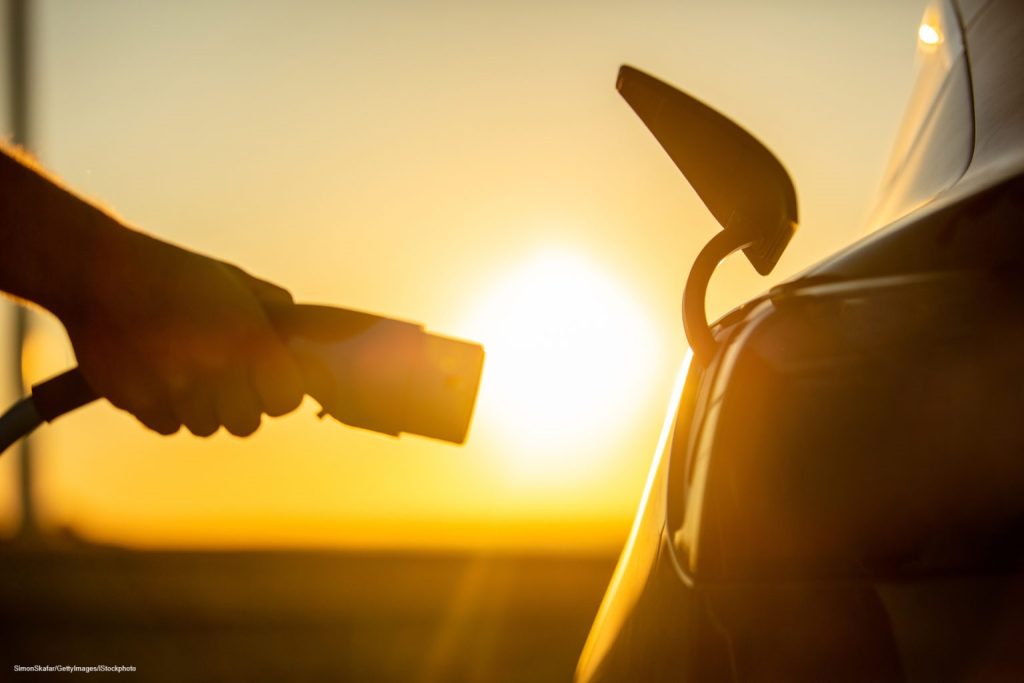
The number of fires linked to electric bicycles and scooters has been rising, with cases nearly doubling between 2020 and 2022, according to fire department data. Experts highlight the need for improved public awareness, designated storage areas, and stricter safety regulations to address these risks. Authorities are urging consumers to take precautions, such as avoiding charging PM devices near exits and ensuring they are stored safely. As South Korea navigates the challenges posed by PM battery safety, regulatory updates and enhanced safety measures are expected to play a critical role in mitigating future risks.
Feel free to contact us any time if you need assistance or have any questions regarding Korean certifications like KC, KC EMC, KCs, KCs for explosion safety products or KGS factory registration.
Tel. Europe: +49-69-271 37 69 259
Tel. US: +1 773 654-2673
Email: info@korea-certification.com
For more information you can download our free brochure “Korea Certification Made Easy – The Booklet“.
Korea to develop Joint SAF Production Facility
South Korea’s four leading oil refiners—SK Innovation Co., GS Caltex Corp., S-Oil Corp., and HD Hyundai Oilbank Co.—are planning to jointly construct a sustainable aviation fuel (SAF) production plant. The project, recently discussed with the Ministry of Trade, Industry and Energy and the Ministry of Land, Infrastructure and Transportation, may receive government support through subsidies and tax incentives. The refiners will share construction costs and operate the facility under a special purpose company. The plant is expected to be built in one of the country’s major petrochemical complexes, with an estimated investment exceeding 1 trillion won ($700 million) for a processing capacity of 250,000 tons of fuel. Pressure vessels containing fuel and similar equipment usually require KGS certification in order to be approved for import and sale in Korea.
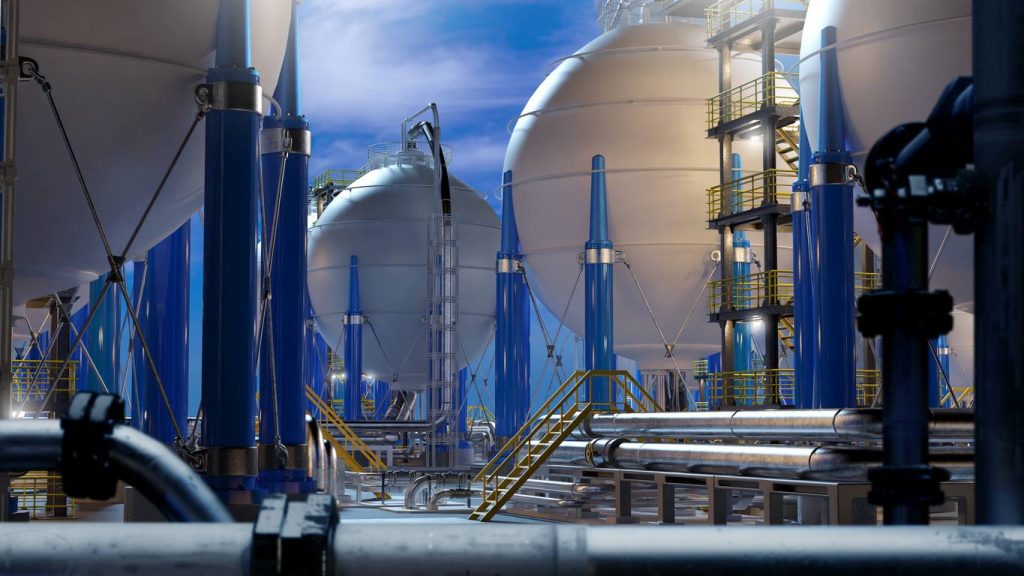
The facility aims to improve SAF production efficiency, potentially converting 60-80% of bio-based feedstocks into SAF, a significant increase from the current yield of less than 10%. Except for SK Innovation, which already operates an SAF production line, this would be the first dedicated SAF plant for the other refiners. The initiative aligns with Korea’s efforts to maintain competitiveness in aviation fuel exports amid tightening global SAF mandates. By 2027, Korea will require 1% of aviation fuel to be sustainable, following similar policies in the EU. The government also plans to designate SAF as a national strategic technology, increasing tax reductions for SAF facilities from 3% to 15%, and is considering direct negotiations with palm oil-producing nations to secure stable SAF feedstock supplies.
Feel free to contact us any time if you need assistance or have any questions regarding Korean certifications like KC, KC EMC, KCs, KCs for explosion safety products or KGS factory registration.
Tel. Europe: +49-69-271 37 69 259
Tel. US: +1 773 654-2673
Email: info@korea-certification.com
For more information you can download our free brochure “Korea Certification Made Easy – The Booklet“.
Korea Consumer Agency Urges Safety Compliance for Digital Door Locks
The Korea Consumer Agency (KCA) has identified significant safety concerns in digital door locks and other electronic devices following recent testing. The evaluation focused on ten types of digital door locks purchased from international online platforms, specifically assessing their reliability during fire emergencies. The results revealed that three types failed to open in high temperatures due to melted manual levers, while five others presented fire hazards as their lithium secondary batteries ignited or exploded at temperatures between 170 and 260 degrees Celsius. Additionally, one model lacked an emergency power supply terminal, making it impossible to open from the outside when the internal battery was depleted. In response to these findings, the KCA has highlighted the importance of KC Safety Certification to ensure that electronic products comply with South Korean safety regulations.
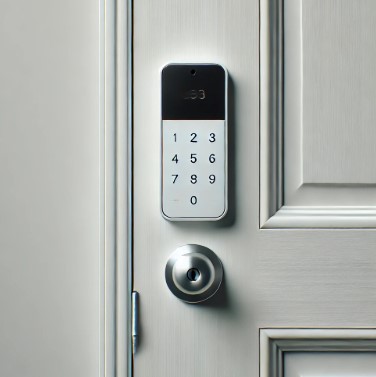
The KC Safety certification is mandatory for electronic devices sold domestically, ensuring adherence to strict safety standards. Currently, domestic digital door locks in Korea are not permitted to use secondary batteries, though this regulation is set to change on May 7 2025. Consumers are advised to verify certification before purchasing to mitigate potential safety risks.
Feel free to contact us any time if you need assistance or have any questions regarding Korean certifications like KC, KC EMC, KCs, KCs for explosion safety products or KGS factory registration.
Tel. Europe: +49-69-271 37 69 259
Tel. US: +1 773 654-2673
Email: info@korea-certification.com
For more information you can download our free brochure “Korea Certification Made Easy – The Booklet“.
Hyundai E&C begins Korea’s First Water Electrolysis Hydrogen Plant in Buan
Hyundai Engineering & Construction Co. (Hyundai E&C) has commenced construction on South Korea’s first hydrogen production plant using water electrolysis, marking a significant step in the country’s clean energy initiatives. Located within Buan County, North Jeolla Province, the facility is expected to be completed by the end of 2024 and begin operations in May 2025. With a production capacity of at least 1 ton of hydrogen per day, the plant will utilize 2.5 megawatts of electricity for electrolysis. Hydrogen production-related products typically require KGS certification to be approved for import and sale in Korea.
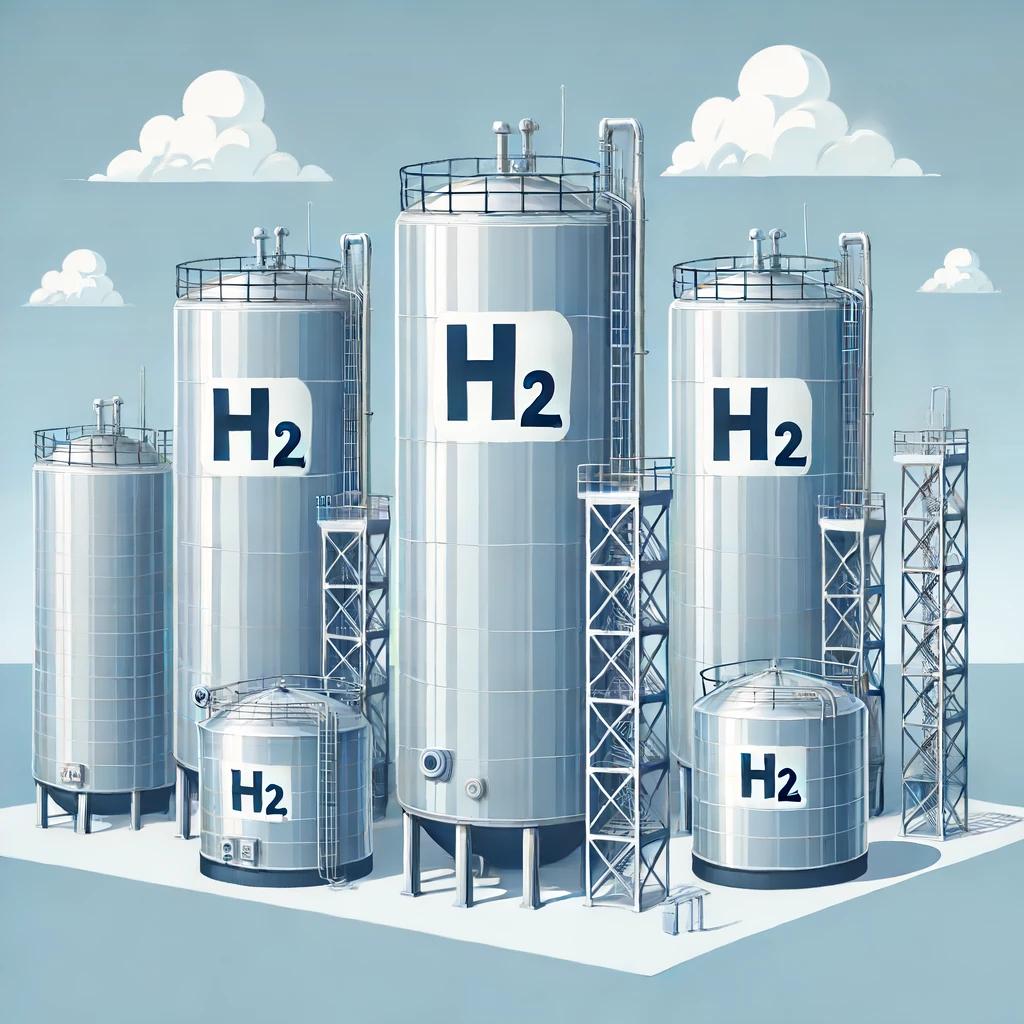
This project, part of a state-backed hydrogen production initiative, aims to supply hydrogen to local research facilities and charging stations. Hyundai E&C, in collaboration with the North Jeolla and Buan governments, Korea Hydro & Nuclear Power (KHNP), Jeonbuk Techno Park, and Techross Water & Energy Inc., has been developing the project since 2022. The plant will use polymer electrolyte membrane (PEM) technology to produce 99.999% pure hydrogen, ensuring safety and operational efficiency. Hyundai E&C is also involved in hydrogen projects in Boryeong and Jeju Island, reinforcing its commitment to advancing Korea’s hydrogen economy.
Feel free to contact us any time if you need assistance or have any questions regarding Korean certifications like KC, KC EMC, KCs, KCs for explosion safety products or KGS factory registration.
Tel. Europe: +49-69-271 37 69 259
Tel. US: +1 773 654-2673
Email: info@korea-certification.com
For more information you can download our free brochure “Korea Certification Made Easy – The Booklet“.
Logistics Companies use Hydrogen Cargo Trucks in South Korea
CJ Logistics has introduced two 11-ton hydrogen-powered cargo trucks into KT&G Corp.’s logistics operations in South Korea. These trucks, capable of traveling up to 570 kilometers on a full charge, have been assigned to the KT&G Daejeon plant route, which ensures access to the Cheongju hydrogen refueling station. The vehicles display the slogan, “CJ Logistics and KT&G are taking the lead together in eco-friendly logistics,” reflecting the companies’ joint commitment to sustainability. The decision to implement hydrogen-powered trucks aligns with their focus on Environmental, Social, and Governance (ESG) initiatives, specifically targeting reductions in greenhouse gas emissions. Hydrogen drive-related components and equipment usually require KGS certification in order to be approved for import and sale in Korea.
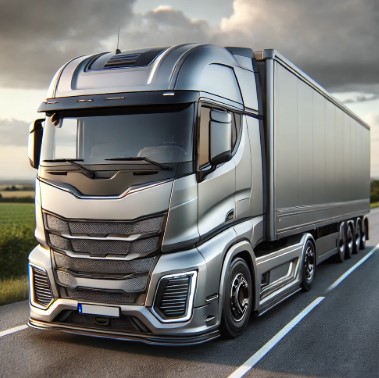
This is the first time hydrogen cargo trucks have been utilized in KT&G’s logistics division, and the move highlights both companies’ dedication to promoting eco-friendly power sources. CJ Logistics has been a pioneer in hydrogen logistics, first introducing hydrogen-powered parcel delivery trucks in 2021. Furthermore, after entering the gaseous hydrogen transport business in June 2022, the company launched South Korea’s first liquid hydrogen transport business, significantly broadening its role in advancing hydrogen-based logistics solutions.
Feel free to contact us any time if you need assistance or have any questions regarding Korean certifications like KC, KC EMC, KCs, KCs for explosion safety products or KGS factory registration.
Tel. Europe: +49-69-271 37 69 259
Tel. US: +1 773 654-2673
Email: info@korea-certification.com
For more information you can download our free brochure “Korea Certification Made Easy – The Booklet“.
LG Electronics Introduces KC-Certified Safety Features for EV Chargers in Korea
LG Electronics Inc. has introduced dual overcharge prevention technology in its 7-kilowatt (kW) slow electric vehicle (EV) chargers to improve safety and boost its EV charger business in South Korea. EV chargers require KC Safety certification to be approved for import and sale in Korea.

The new safety features include a smart control system and a power cut-off mechanism after charging completion, forming a double-layered safety net to prevent fire hazards. The smart control technology uses real-time data transmission between the EV battery and the control system to monitor charging status and stop charging when necessary. It is certified under ISO15118 VAS and OCPP protocols, meeting the Ministry of Environment’s subsidy requirements for slow chargers and enabling future global expansion. Additional safeguards include compliance with the EU’s Restriction of Hazardous Substances (RoHS) standards and performance testing at LG’s EV charger facility in Pyeongtaek.
Feel free to contact us any time if you need assistance or have any questions regarding Korean certifications like KC, KC EMC, KCs, KCs for explosion safety products or KGS factory registration.
Tel. Europe: +49-69-271 37 69 259
Tel. US: +1 773 654-2673
Email: info@korea-certification.com
For more information you can download our free brochure “Korea Certification Made Easy – The Booklet“.
Korea Launches Pilot Program for EV Battery Safety Certification
The Korean Ministry of Land, Infrastructure, and Transport has announced a pilot project to enhance safety oversight for electric vehicle (EV) batteries, addressing concerns over recurring EV fires. Starting this month, five major companies, including Hyundai Motor, Kia, and LG Energy Solution, will participate in the initiative. Full implementation of the KC Safety certification rule for equipment related to EV battery production is scheduled for February 2025. Equipment used in EV battery production generally requires KC Safety certification to be approved for import and sale in Korea.
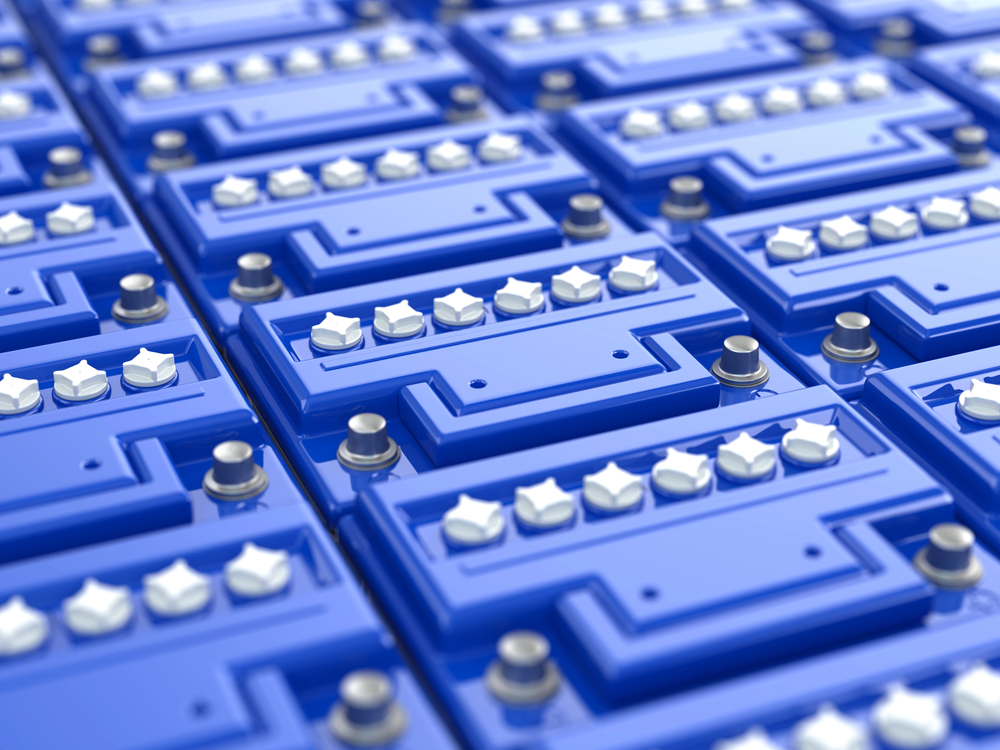
Under the pilot scheme, automakers and battery firms must report their EV batteries and battery management systems to the ministry for certification. These systems will undergo rigorous safety tests assessing 12 criteria, such as overheating, overcharging, and thermal shock. Companies failing to meet safety standards must address deficiencies before certification. This initiative is part of a broader overhaul of the self-certification system, in place for over two decades. The government aims to collaborate with safety authorities and industry stakeholders to ensure public confidence in EV safety.
Feel free to contact us any time if you need assistance or have any questions regarding Korean certifications like KC, KC EMC, KCs, KCs for explosion safety products or KGS factory registration.
Tel. Europe: +49-69-271 37 69 259
Tel. US: +1 773 654-2673
Email: info@korea-certification.com
For more information you can download our free brochure “Korea Certification Made Easy – The Booklet“.
KCs Certification for Robotics Products in South Korea’s Food Industry
Robotics products used in South Korea’s food industry must meet the KCs (Korea Certification) standards to ensure safety and quality compliance. With automation becoming more prevalent in food service operations, various robotic solutions are being implemented, such as barista robots, automated fryers, and noodle-cooking robots. These robots help address labor shortages, improve efficiency, and maintain product consistency. To enter the South Korean market, robotics products typically require KCs certification to be approved for import and sale in Korea.
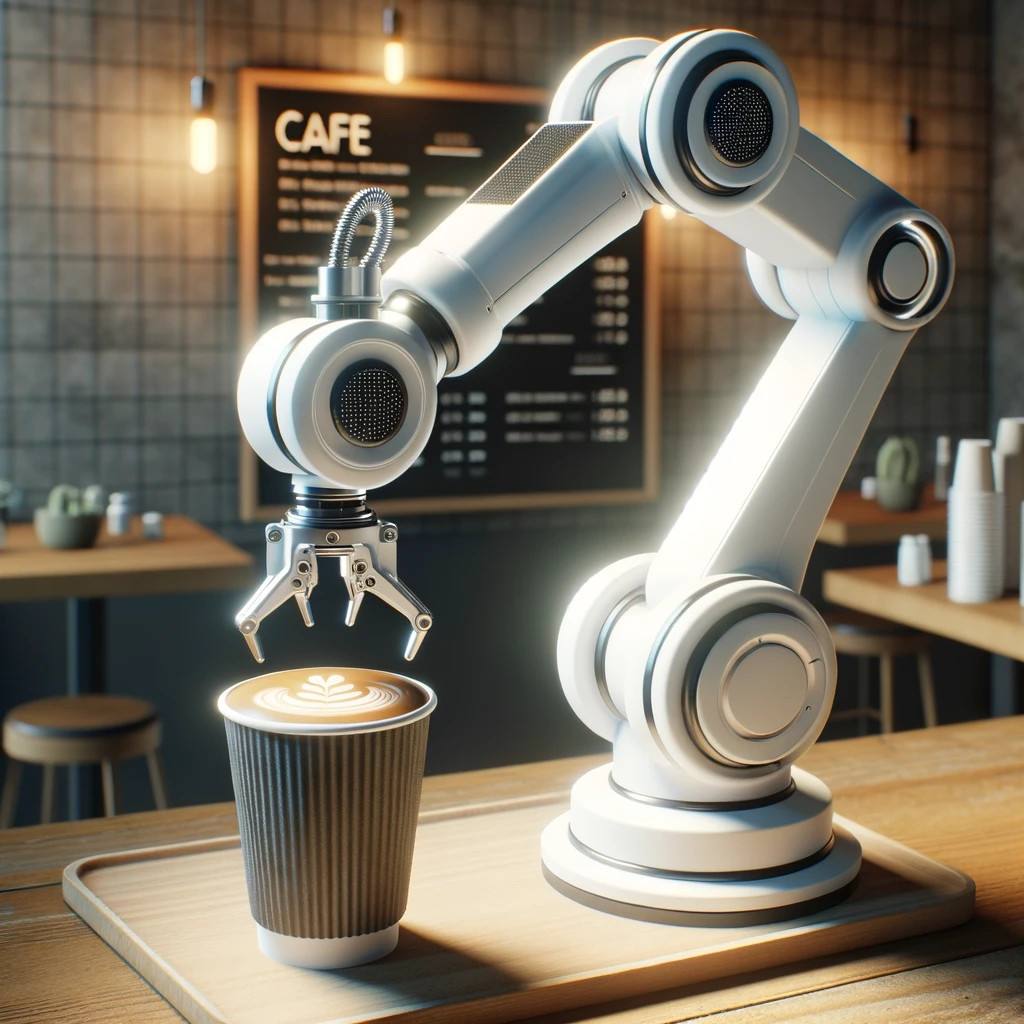
KCs certification involves safety assessments to ensure that robotics used in food preparation meet national safety regulations. The certification covers key aspects such as mechanical safety, electrical safety, and operational standards. As the government aims to support robotics-focused startups and expand robotics adoption in the food industry, obtaining KCs certification is critical for manufacturers looking to participate in this growing market. The increased demand for robotics in food tech, driven by labor challenges and cost-efficiency needs, is expected to continue reshaping the industry in South Korea.
Feel free to contact us any time if you need assistance or have any questions regarding Korean certifications like KC, KC EMC, KCs, KCs for explosion safety products or KGS factory registration.
Tel. Europe: +49-69-271 37 69 259
Tel. US: +1 773 654-2673
Email: info@korea-certification.com For more information you can download our free brochure “Korea Certification Made Easy – The Booklet



